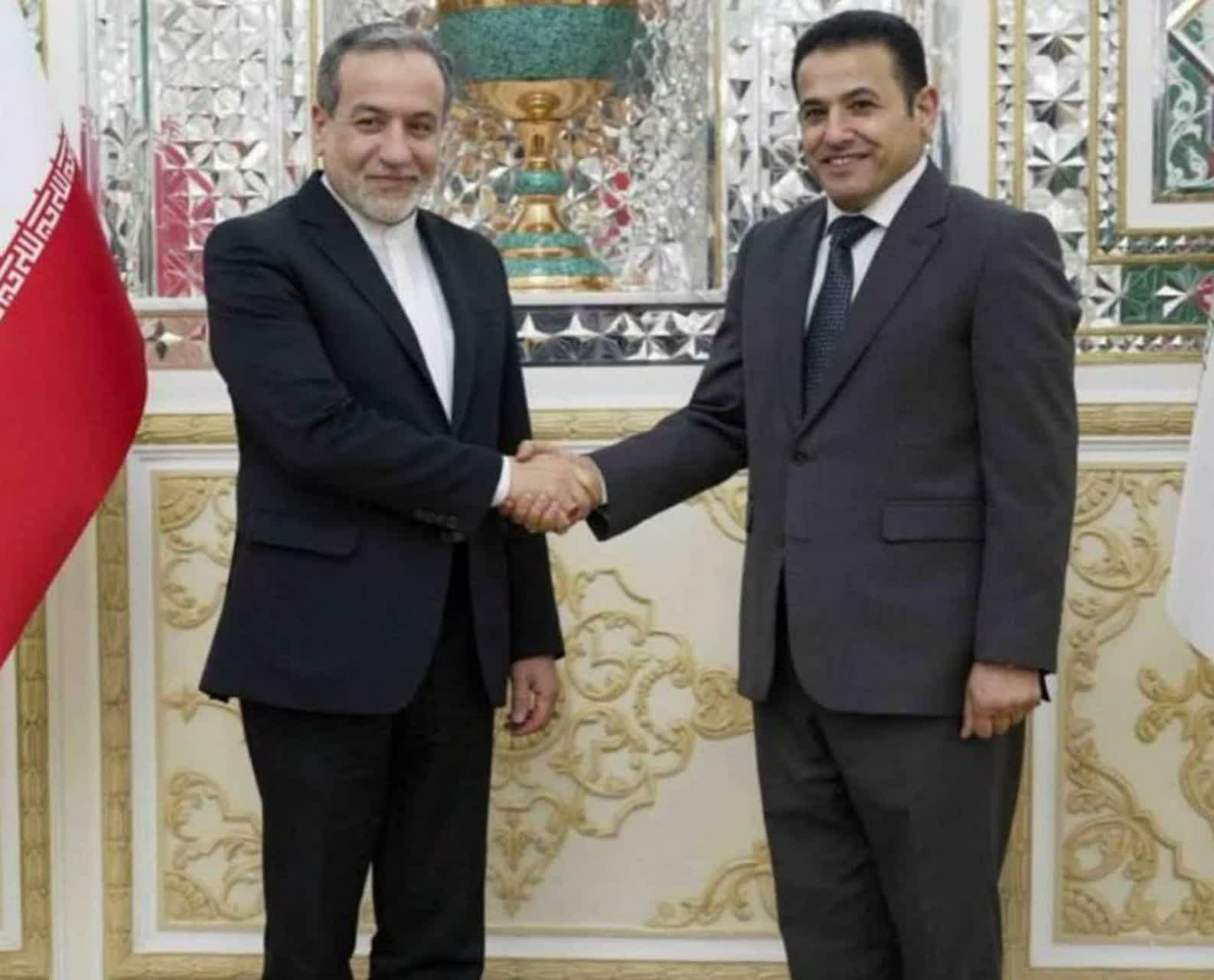Alwaght- In the continuation of the active Iranian diplomatic traffic in recent days, in an important development, Tehran hosted Iraqi National Security Adviser Qassam al-Araji who led a security delegation to the Iranian capital.
The trips of the security officials are always low-key and usually inconspicuous, but they take place behind the scenes of very important and sensitive and influential agendas, and for this reason, having in mind that the developments in the region have reached a dangerous point with the flare-up of the war in Lebanon, the Iraqi top security official's visit to Tehran and his talks with the Iranian officials should be seen more than ordinary diplomatic interactions.
What the media and diplomatic sources have speculated about the content of meetings with Iranian officials give us hints about the key issues of discussion and nature of this visit.
One of the most important messages of al-Araji is that Baghdad stresses on the protection of the security of Iran. He said that Iraq considers Iran's security its security and considers any destabilizing actions against Tehran will be met with reactions of the central government and the Iraqi Kurdistan Regional Government (KRG).
Al-Aarji also reviewed the security agreement between the two countries with Ali Akbar Ahmadian, the secretary of Iran's Supreme National Security Council, and emphasized on accelerating the process of implementing the terms of the agreement, especially preventing the presence and activity of terrorists next to western borders of Iran. The two sides agreed to cover other common threats, including military, security and economic threats by completing and extending the security agreement.
Baghdad's diplomacy under the US pressure
The visit by al-Araji came amid escalation of tensions between Iran and Israel and as, according to Iranian media, Iran is preparing to launch its third attack on the occupied territories in reaction to Israel aggression.
Al-Aarji's trip is important from te point of view that some American sources such as Axios and Washington Post claimed that the Islamic Republic is going to attack Israel this time from Iraq.
After these western media reports, US Secretary of State Anthony Blinken said last week in a phone call with Iraqi Prime Minister Mohammad Shia al-Sudani that Baghdad should stop the attacks of armed groups from Iraqi territory. Blinken seems to have meant the expected Iranian attack.
In such a situation, it seems that the trip of the Iraqi national security official to Iran is mainly about the tension between the Islamic Republic and Israel and the al-Sudani's government's effort to stay away from this conflict.
In the meantime, while the Iraqi officials claim that they will not allow an attack on Iran from this their territory, in the recent anti-Iranian aggression of the Israelis, Israeli fighter jets had turned the sky of this country into an air highway. Even according to Habibullah Sayari, the deputy coordinator of the Iranian army, the skies of Iraq were under the control of the Israeli regime and the countries supporting this regime for 25 days as they waited for an opportunity to attack Iran.
Therefore, in action the Iraqi government has not been able to fulfill its promise and commitment to the national security of the Islamic Republic and to prevent the use of this country's soil and sky against Iran, though Iran indeed has no doubt about the good will of Iraqis. But taking verbal political positions is not enough and the Islamic Republic expects that, as stated in the security commitment between the two countries, the sources of foreign threats through Iraqi territory should be removed for the good of Iranian security.
It is likely that given Washington's pressures on Baghdad, al-Araji visited Tehran to announce Baghdad's neutrality in the Iranian-Israeli confrontation. In this case, the Iraqi diplomacy is playing into the hands of the Americans and Israelis.
Though being a strategic ally of Iran, Iraq in practice could not take action to prevent Israeli and American action against Iran. Even in recent Israeli attack on Iran, Baghdad acted weaker than other Arab countries of the region, which did not allow Israeli fighters to use their skies and condemned the attack.
Before al-Aarji's visit, Iraqi PM in reaction to reports of Israeli use of Iraqi airspace for its attack on Iran said that Iraq should be kept away from the war, remarks that are totally revealing the political pressures of the US on Baghdad and making Iraq's political moves a part of the American game to create a security umbrella to Israel. Iran is seeking to break this equation and maintain its deterrence with announcement of preparation to launch a third Operation True Promise against the occupied territories.
Baghdad's return to the security agreement
After years of tolerance and using dialogue with the Iraqi government to deter threats to its soil by Iraqi-based terrorists, Iran finally launched attacks on their positions inside Iraq amid Iraqi underperformance, to an extent that even Iraqi officials understood that to prevent such attacks they should seriously counter threats to their neighbor from their soil. The result was a mutual security agreement with Tehran.
Therefore, to thwart the Israeli aggression on Iran through Iraq's airspace, a mechanism has already been set and it is enforcement of the security pact. As under the same pact Iraq distanced threats of separatist groups to Iranian territorial integrity via its territory, the pact can apply to Israeli hostility. Actually, if the Iraqi government is serious about its stated policies, it should pressure the US and expel its forces from Iraq in a bid to distance Israeli threats from Iran.



























